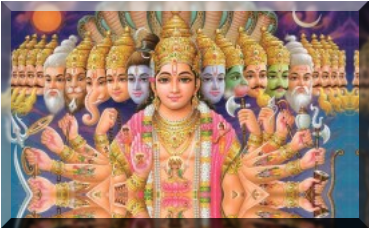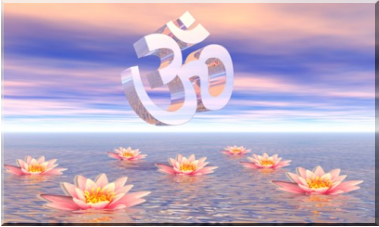





‘Knowledge is power’

Indian Elections 2014 - A Hindu Revolution: What Made the
Hindus Seek a Revolution, like the Iranians?
MIDDLE EAST
World’s
encyclopedic
knowledge
compacted
in
your
hand




1 2
(BJP/Modi won the Indian elections 2014. Though the global philosophers haven't said so, in a 3-part series this author argues that
the change is a Hindu Revolution. While the first part argued why it was a Hindu Revolution (HR), strengthening the case this
second part argues why the Hindus felt that the HR was necessary. The yet to be
published third part will argue, whether the world needs to fear the revolution, like the Iranian Islamic Revolution)
No Dictator to Revolt Against
Using the 2014 election and gaining power after almost a
millennium, Hindus did have a Revolution (HR), like by the
Muslims in Iran. But why was there a need for a revolution?
For a start, unlike Iran, India did not have a Shah-like dictator or
even a Savak-like torturing agency.
The Past Wasn't All Bad
Yes, India had a series of 'alien' rule by the Muslims, the British,
the socialists and then by globalisation. But then, not all was bad.
True, the Muslims even managed to rule for several centuries, but
then, unlike Egypt and Iran that had their religions wiped out
shortly after their conquest by the Muslims, India still remains a
majority Hindu state. Muslims are, in fact, baffled by this unusual
failure or the
exception that compels their missionaries today to finish the
unfinished job. Although both Hindus and the National
Geographic agree on India being uniquely protected by
mountain ranges, desert and the seas, and the former even adds
a 'blessed land' - like Israel for the Jews - the enigma is mostly
explained by Islam's Hanafi school of thought that did the trick.
By letting Hindus qualify as jizya tax paying dhimmis, and the
collected cash filling the ruler's coffers, it has helped save
India.
This resistance still gives pride to the Hindus.
Furthermore, unlike the Brits, they took India as their
homeland and therefore almost retained India's GDP. Though
they destroyed constructs, the monuments left by them are
treasured by all today. Unless P N Oak is right, the world
famous symbol of love, the Taj Mahal, forms the crown jewel.
While their contribution to the Indian classical music is well known, the less known translation of Hindu text to Persian aided
knowledge in Persia.
Indeed the Brits ruled as foreigners and reduced its GDP, but unlike the Muslims they gobbled up only 1-2% of Indians as
Christians. While their railways gives a good feeling to most Indians, the given English language gives pride to its elite. Being an
international language that has merged with globalisation, while the entrepreneurs and job seekers cherish that language,
qualifying for international prize and sales, writers go ecstatic. Though they burnt books, they also made Hindu literature available
to the international audience. While Buddha enlightened all spiritually, removing his birth place enigma, they enlightened all in a
mundane way.
Indeed, India got vivisected on religious grounds into Hindu India and Muslim Pakistan, during partition. But, as if tracing
Bollywood copying Hollywood plots, it copied the British constitution. Its written form, unlike in the UK, was even 'bragged'
about.
The Turn of the Socialists:
Although the, 'I am the last British ruler of India' saying man couldn't resist the lure of 'From Russia with Love' and ditched the
West for the then USSR that heralded a socialist rule in India, it matched the West's struggle against religion. In so doing, while
less virulent Indian communists became ecstatic, socialist scribes turned the 4th pillar into a free socialist media (not today's social
media) and congressmen just followed the idolised chacha, its minorities just felt contended with their special minority rights. In
addition, his showing teeth as the Non Aligned Movement (NAM) even brought prestige to him and to the nation. It's not that the
Hindus didn’t get anything, they got the Hindu ways in the state ceremonies. Like the non-biting NAM, they were 'non-opposing'
anyway.
And when the seemingly innocuous daughter Indira's turn came to warm the
hearts
of the ones in the North Pole, India even became officially socialist and
secular. With this ascent from de-facto to de-jure, its modernity beat
countries like UK with de-facto secular alone. In effect, while communist
Russia became ecstatic, freedom seeking scribes felt free from the divine
clutch. As amazingly as deer not fearing the tiger, minorities preferred a
godless secular state than a Hindu one. Their glee was almost more than that
of the
atheists. But then, as if contented with the continued Hindu ways in the
government and secular meaning 'Respect of All Faiths', passive Hindus just
remained passive. Seemingly modern and western, the acceptance was such
that
the new mantra - 'We are a secular nation' - easily beat the Gayatri, and
became the most quoted mantra. One stroke of a pen suddenly changed the
nation's ethos.
All accepted the power of democracy that aided the smooth transition of
power. Under it, people could fire and hire their PM, as they did to Indira
Gandhi after the Emergency. Almost more than in the West, free scribes
could
challenge the Supreme Court, disregard copyrights and even publish
concocted stories. With the Saraswati river descending from mythology to
history, Dwarika climbing up from the deep sea and one gene theory
emerging to demolish two gene theory of the Aryans coming from outside,
even
Hindus seemed to show a grin.
While quoting from books of their experts and philosophers made the West
glad,
receiving prizes from English literary world made the Indians go gaga. A
man
even said in broken English, 'Brits came too late and left too early'.
The Turn of Globalisation
Impenetrable to the Muslim and the Christian onslaughts earlier, India fully let globalization penetrate itself. That changed India
as never before. Getting gadgets, the Net, English-aided highly paid jobs (beyond parental imagination) and social and sexual
freedom, it was the youth's turn to be happy. Cash flow from entrepreneurs, and UK's NHS and USA's cyber city, helped.
Moreover, with God vanishing from the national ethos, and as expected, that secularism descending from state to homes, He
gradually disappeared from ordinary homes too. Yes, even the homes of the minorities! With this, the idea of many lives got
reduced to 'one life' of the Semites and then to that of the atheists.
With the afterlife bliss thus gone with the wind, fear of hellfire extinguished and money filling the void as a neo-God, (It even
brought respect, irrespective of the means), bliss was to be found through money here. Irrespective of what Adi Sankaracharya
said, this life was real and had to be enjoyed. To miss the bliss coming out of the cash, gadgets and the opposite sex was foolish.
Suddenly a new mantra emerged - 'Life is short and single, therefore enjoy'. It almost competed with the mantra of secularism.
With the dream worlds - Bollywood, media and the PC/mobile porn - converting beauty to sexy and bliss of love to bliss of body
for both sexes, joy was easy. For cash couldn't buy love, it could buy the body. Hedonism, therefore, skyrocketed in the cities.
Being chanced than planned, the 'can have sex, but with a condom' teaching translated into condom-less, even pill-less sex. But
then, with mums organising the ways for abortions and STDs, virginity not demanded by future spouses, and the whole thing
being part of the respected 'exploring of sexuality', even city girls never had such good time before. The seeking of joy was never
so free from consequences.
Adults weren't less. Airing 'Bedroom isn't the business of the state', women's desire did a “two to tango” to the triad of masculine
desires - look, feel and penetrate. While skyrocketing pre-marital sex offered bliss to the singles, adultery and consensual swap
offered it to the married. And those who didn't go for the full Monty - look, feel and penetrate- got their two of the three joys in the
Bollywood aided conversion of the Namaskar to hugs. Worldly success mattering more; while own tuition fee and fashion made
college girls get their cash in hotels, sibling's tuition made housewives try the easy way. And housewives who escaped all that got
glued to soaps full of repeat marriages/affairs. With free sex symbolising modernity, and Indians calling West immoral ever since
they saw Brits dancing with other's spouses, an Australian blogger's 'Indians are more immoral' made them now look more modern
than the West.
With God not quite dead - whatever Nietzsche might have said - but still having a self half-life till the next generation, almost like
the cattle of the agricultural revolution, even He was being tamed. It's so because secularism had hit ordinary homes, but faith-
homes still claimed 'virgin territories'. With Him remaining blissful with the seeking of forgiveness and holy place donations that
mitigated secular sins, piety got paired with the latter. In fact, with secrecy and hypocrisy maintaining prestige, and secular sins
thus easily mitigated, faith-home donations matched the skyrocketing mundane joy. Noting 'business is booming', even the priests
felt joyous (At least till the next generation, when 'Churches of Church of England' will emerge). Like their faith offering goodies
of both mono and polytheism, they seem to enjoy best of both theism and atheism. True freedom indeed!
Certainly there was corruption, but where in the world it isn't? Also, voters had the right to hire leaders and, if very corrupt, fire
them anyway. Sure India had Maoist terrorism, but being in the villages, it didn't dominate the airways. Of course, Jihadi terrorism
happened in the cities, but being occasional, they were live reported, talked about, condemned and then gradually forgotten - till
the next. Yes, rape is more frequent and is even an epidemic, but like corruption, it is global. If sufficiently gruesome, it even gets
nationwide protests and change in the ways of the courts.
Indeed Bollywood blatantly copies Hollywood, but it has penetrated homes of the people of Pakistan, where it is banned. If
anything, there should be a revolution in Pakistan, not in India.
So Why the Revolution?
The Glorious Past:
Almost suggesting not all can be made happy, or God's job isn't easy, or even
majority doesn't always mean empowered, despite all that, Hindus who were in
the majority were not happy. But then, why?
Albeit all three - the past, the present and the future - were the cause of the
discomfort, the past was by far the most important.
Not being European ruled primitive people, who were made civilized by the
'White man's burden', but having a glorious past that even made Indians retort
'They lived in caves, when we were in palaces', the formed utopia enticed a desire
to achieve it. It was a similar incentive that made the French revolutionaries aspire
for when apprised about their rights.
It sounds like the tit for tat Atom Bomb blast, but unlike the 'We ruled over the
Hindus' of the Pakistanis, this utopia was for real.
With its influence stretching from Afghanistan to Japan; its narrative,
Mahabharata, forming world's longest story; its perfected language, Sanskrit, seen
as the mother of languages and computer friendly; its grammar by Panini regarded
as faultless; its inventions like '0', yoga and meditation helping humanity even
today; its 6 system of philosophy even including atheism; its several universities attracting
global
students like Oxford and Harvard do today; its GDP and gold reserve topping global figures; its
ideals being
'truth wins'; respect for sacrifice and high morals; and its pluralism accommodating persecuted minorities like Jews and
Zoroastrians, the Hindu utopia wasn't misplaced.
It is the descent from that civilization, when they, the Hindus, had a say
through Islamic, British, socialist rule and then through globalisation that
has, in effect, produced a wounded civilization for them. It is the
resentment and the desire to re-achieve that utopia that forms the nidus of
the revolution. But then, there is more.
Exasperation with The Muslim Rule:
Although Islamic conquest didn't make India Islamic, it was filled with
killings and destructions. While the genocide done caused physical pain,
the ravaging of architectural constructs and temples and the building of
mosques over them caused emotional hurt. The burning of libraries caused
the loss of their knowledge, and their past.
Seeing it as 'past is past' and today's Muslims not guilty of that, and
tracing truth and reconciliation, the Hindus demanded only the three main
temples - among the many destroyed. Not getting those, especially the
Ram
temple in Ayodhya, they felt resentful. Bad treatment of Pakistani Hindus and their lessening in
number hurt them.NEXT

Hindu God Bishnu



The Hindu Sacred Word OM
Hindu Dance in Bali

The Nalanda University
Raise the vol to listen to the
lady airing awe @ the SINGLE author encyclopedia
You may also like:
Disturbing stats on black-white inequality
Now girls are a THIRD more likely to go to university than boys
Sound effect: Bhajans (Hindu faith songs) helping Autism
Lessening productivity 50% of Americans have worked with a hangover
Scientists say fist bump is healthier than handshake ?Hug & kiss
Meet Darknet, the hidden underbelly of the searchable Web





WOMEN’S POWER: ITS PAST, ITS PRESENT, ITS FUTURE: FEMOCRACY
WEB PAGES
OUR OFFERING
UPLOADED ITEMS
OUR EMAIL
kri200@womenspowerbook.org
QUESTION



















